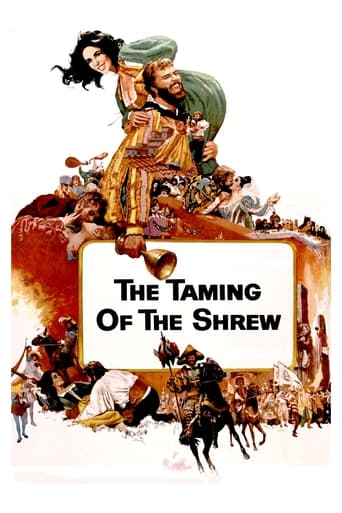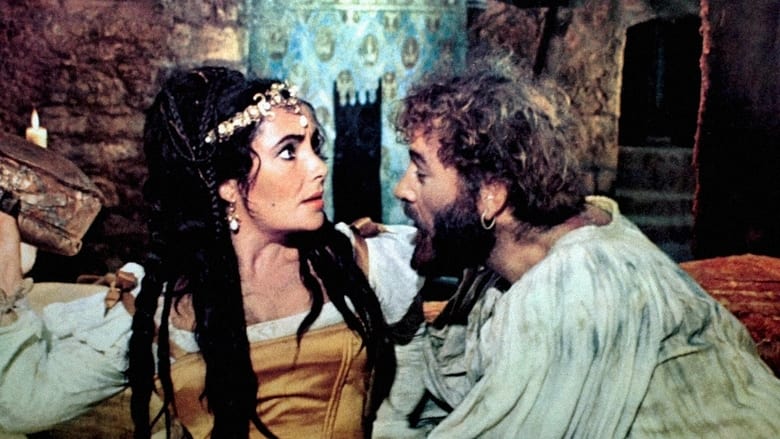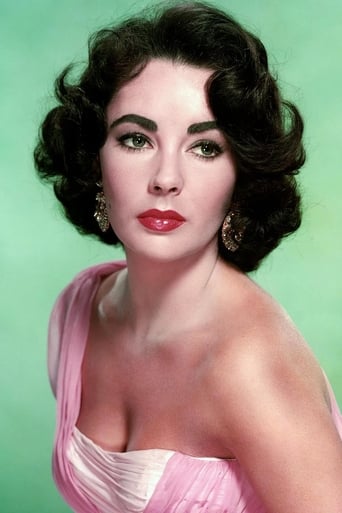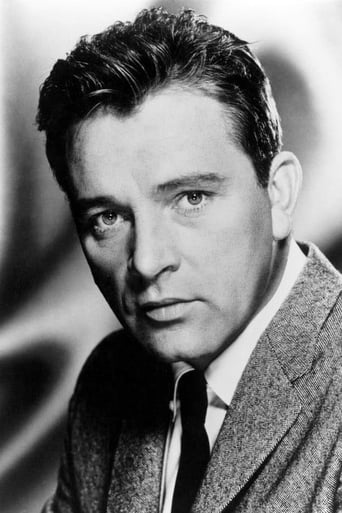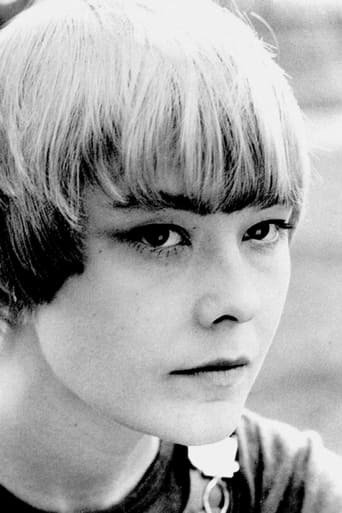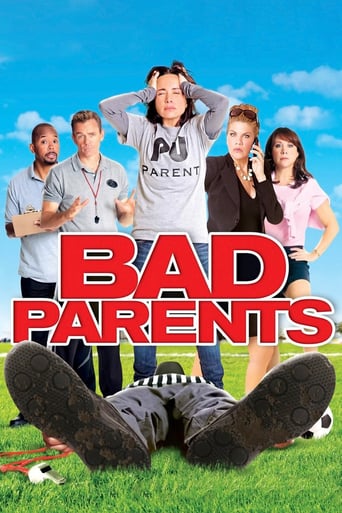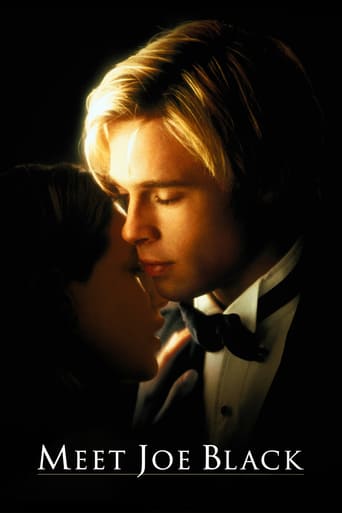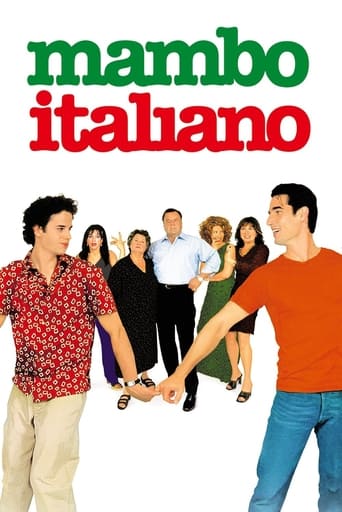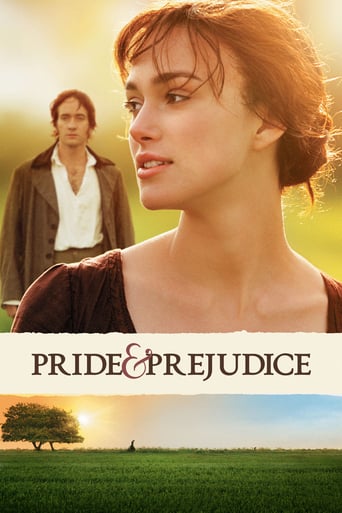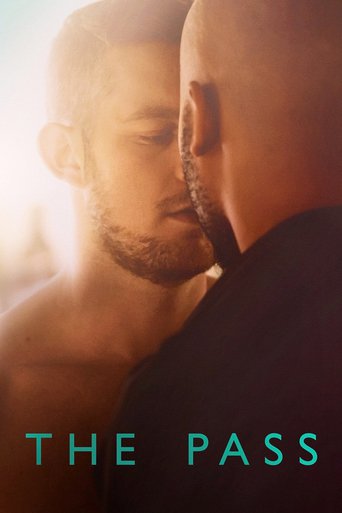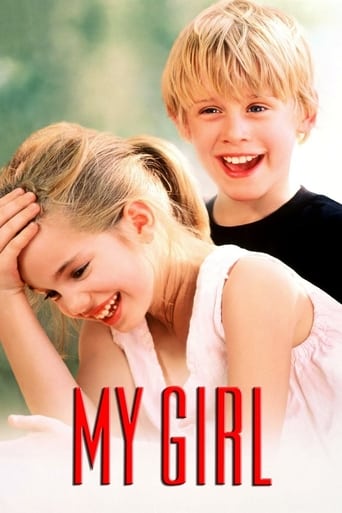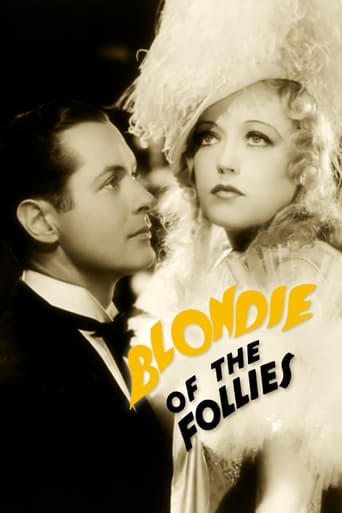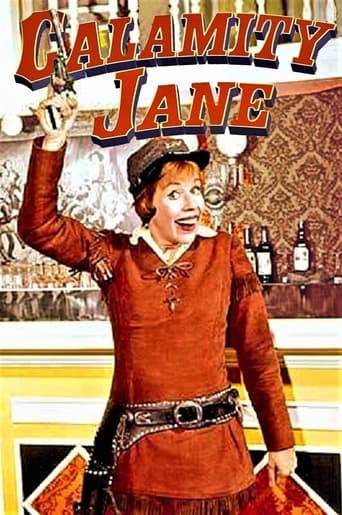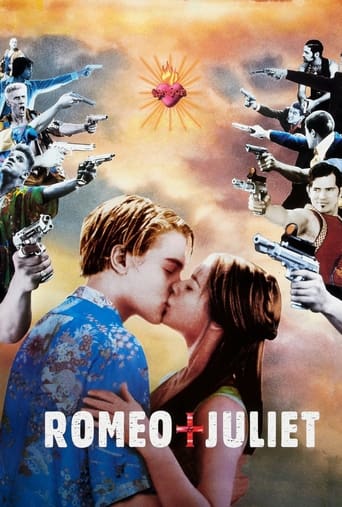The Taming of the Shrew (1967)
Italy, 16th century. Petruchio, a choleric, lying and poor rural landowner from Verona, arrives in Padua in search of fortune and a wife, while Baptista, a wealthy merchant, announces that he will not allow Bianca, his youngest daughter, to marry until the temperamental and unruly Katherina, his eldest daughter, does.
Watch Trailer
Cast


Similar titles
Reviews
Franco Zefferelli's adaption of William Shakespeare's classic play, The Taming of the Shrew, released in 1967 is one of the most effective Shakespeare adaptations of its time. Filled with celebrated actors, decadent costumes, and set against an opulent Italian backdrop, The Taming of the Shrew is a fast-paced and enchanting watch, infused with the classical comedic screenplay which made the original comedy-drama such a success. Zefferelli's adaptation stays true to the original play, whilst also receiving a more contemporary lift, making it an entertaining and enjoyable experience for all modern audiences. This attraction can certainly be partly credited to the casting of two renowned film stars, Elizabeth Taylor and Richard Burton in the leading roles of Katherine and Petruchio. The casting of this particular couple who were actually married at the time allows them to bring their natural chemistry to the screen, adding a fiery disposition to their characters and making the principal relationship more authentic. In fact, the couple were described in the original trailer as playing, 'The motion picture they were made for...need we say more!' Indeed Taylor and Burton seem to intensely connect with their on-screen counterparts, the eccentric and passionate husband and wife. Taylor and Burton excel as the plays principal chaotic duo and for me, they were the major attraction of this adaptation. Taylor perfectly portrays Katherine's tempestuous nature, capturing the wildness of the Shrew so effectively that anyone who had formerly doubted Taylors potential to portray a leading Shakespearean lady were proved extraordinarily mistaken. Likewise Burton flawlessly depicts Petruchio as a self-absorbed and arrogant man, with the flair we have come to expect from the talented actor. Burtons Petruchio excellently emulates his wife's unruliness with his obscene expressions and constant state of inebriation. However, personally it was Taylor's performance in particular which captivated me. The adaptation for the most part stays true to the original plot, one crucial exception is that the traditional Induction is eliminated, commonplace for the majority of Shakespearean adaptations of the epoch. Some of the original subplot is omitted, such as the extent of attention on the relationship between Lucentio and Bianca, making room for more focus on the leading couple. The overall tempo of the film is fast paced, creating a dramatic and entertaining experience. The themes of male chauvinism, domestic violence and the repression of women are dealt with in such a comedic fashion it's easy to forget how harmful and prominent these issues actually are in contemporary society. Fortunately, Taylors Katharina appears to turn the tables on her Petruchio in the end, emphasizing the underlying control held by woman and giving a new edge to the apparently submissive character. The new domesticated Katharina who emerges in the end is ultimately proved to be deceptive by her exit, by cunningly pushing Petruchio to follow her and subjecting to him to scrutiny from his contemporaries. This pursuit is reminiscent of the chase which also occurs in their introduction. This portrays a power reversal which is contrasting to Shakespeare's conclusion and also slightly rebuffs the misogynistic overtone of the film making it evident who is really in charge. This slight alteration which shifts the balance of power is an appealing finale for the female audience. Overall the film retains its comedic aspect which makes it a humorous and enjoyable watch. Zefferelli shoots his exuberant motion picture against a picturesque Italian backdrop, certainly deserving of its two Academy Award nominations, Best Costume Design and Best Art Direction. The opulent costume design is reflective of the era, epitomizing the decadence of dress the 60's has come to be renowned for. The scenery is certainly inspirational, perhaps the sunny Italian atmosphere is intensified by the fact that Zefferelli himself is Italian which makes the environment more authentic, by having a native director who certainly knows what he is doing. These aspects are a key attraction to this version of The Taming of the Shrew, adding to and emphasizing the energy and fervour of the picture. On aspect of the film which was not so favourable and would have greatly added to its appeal had it been more successful was its score. Following the musical success of 'Kiss Me, Kate', which opened in London's West End in 1951, Nino Rota's musical composition feels slightly lacking in drama and excitement, a feature which did not escape the critics. Otherwise, The Taming of the Shrew was received to generally positive reviews from critics at the time of its release and it retains its timeless appeal even now.
To be honest I still haven't made up my mind about this play, and yes, I know that this is a movie based upon the play, but I wish to discuss what my original thoughts were when I first watched this movie and the penny dropped. I remember my housemate come in and was appalled at one of the scenes in which Richard Burton held Liz Taylor down and commented that such a scene would not be accepted in today's world. For me, it was Katerina's final speech that outraged me, and then the more I thought about the play, the more outraged I became at a play that on its surface, treats women like dirt. Granted, the concept of selling one's daughter to the highest bidder is something that still occurs today in some cultures, but it is the status of women in this play that outraged me.Let us consider it for a minute. The entire play is about how a man, Petruchio (played by Richard Burton) psychologically beats a woman, Katerina (played by Elizabeth Taylor) into submission. What is strange though is that many of the people that I spoke to about this either laughed and said that it is Shakespeare, or berated me for taking 21st century thought into a 16th century play. However, a little research (read wikipedia) suggested that the play was quite controversial even in Shakespeare's time, and a further play, The Tamer Tamed, was written a little later in which the tables are turned on Petruccio.However, there is still my position on the play, and on the film. The film is very good, and treats the play in a way that many people treat it, and that is as a farce. In another sense, what we can be seeing is social criticism, Shakespearian style. However that still begs the question of whether Shakespeare is a misogynist. I don't think so. Some of his women are very strong characters, as well as being very respectable, and very eloquent (read Miranda, one of the most beautiful of Shakespeares' characters, in my opinion). Then there is Titania, she is very much an iron lady. Further, we need to consider the context in which it was written. There was a woman on the throne of England, who succeeded another very brutal and bloody woman (by which she earned the moniker, Bloody Mary).In my opinion, the jury is still out on this play, and I will be returning to it once I have read it. However it is interesting to note that even Germaine Greer liked the play and wrote highly of both Petruccio and Katerina (though she probably did read a bit too much into it - but then again, so have I).
Film Review: The Taming of the Shrew (1967)My film review is on the 1967 version of The Taming of the Shrew directed by Franco Zeffirelli. It is a film based on the very popular novel by William Shakespeare. The story is set in the Italian city of Padua and is about a father who wants to wed off his older, vicious, wild daughter before anyone can marry his younger, sweeter and prettier daughter. It is quite a humorous film and I think Zeffirelli picked the cast very well and they suited their characters. Elizabeth Taylor who plays Katharina plays her character very well; at the start of the film she is a loud, scary, violent person who acts crazy. She fights with her sister and father constantly and refuses to get married, she has wild black hair and very colourful clothes and she is very strong, independent character. However at the end of the film she is completely different after being "tamed". She is quiet and respectful to her husband. She agrees to whatever he has to say and does what he tells her to do. Her hair is pulled back off her face and neat. Bianca, Katharina's sister is played by Natasha Pyne is a completely different character to Katharina. She is quiet and polite. Bianca is smaller, prettier and sweeter than Katharina. You can really tell the difference in the two of them in the film even by what they are wearing. Bianca wears pale, pretty dresses and has her hair always done nicely, whereas Katharina wears colourful crazy dresses and her hair is always messy until she met Petruchio. The costumes in The Taming of The Shrew are very colourful and old fashioned. They wear long, puffy, colourful dresses like what they wore in the 1600's. The men then wore massive woolly jackets and tight trousers. Both men and woman also wore big head pieces. Men wore hats and sometimes a few feathers on it and woman wore very expensive looking head pieces especially to occasions like weddings which we see a lot of in The Taming of The Shrew. The setting of the film is also old style; they live in massive old castles. In the scene when Petruchio chases Katharina we see a lot of the house and the barn or storage area, there was onions hanging all around it from the ceiling, big blocks of cheese and a massive area for storing sheep's wool which shows how well off Katharina's family were to have so much sheep wool which would have been very expensive back then. I think The Taming of The Shrew is quiet a humorous film. There are some funny parts throughout it like when Petruchio is at Katharina's house ringing the door bell and Katharina gets so frustrated that she pulls the doorbell off and breaks it and slams the door in Petruchio's face. This scene shows how angry Katharina is and how violent she is but is also witty. Another funny scene is at the very end when Petruchio sends his servant to command Katharina to come into him. As the servant is walking out the door he blesses himself because he thinks Katharina is going to attack him for telling her what to do and feels like he won't make it out alive. I think one of the main scenes in The Taming of The Shrew is when Petruchio and Katharine are heading back to Padua to Katharine's father and Petruchio tells her that the sun is the moon and she agrees with him he then says that it is the sun and she agrees with him again. She is completely controlled by Petruchio and is now "tamed". She would never disobey him like she would before they got married, she is completely different person. Another major scene in this film where it shows Katharine completely different is at the very end when each man calls in their wives to the ball room, none of their wives would come out to them apart from Katharine. Who was the last person everyone thought would come out. This also shows how much Petruchio controls her. I really liked this film. I thought it was really interesting and funny at parts. Franco Zeffierlli also directed the 1968 version of "Romeo and Juliet" and I much prefer his version of "The Taming of The Shrew". I think I might like it better because I feel there are so many different versions of "Romeo and Juliet" and I've studied it so many times whereas this was my first time studying "The Taming of the Shrew" so it was all new to me. I also loved the costumes and the characters in this film, especially Katharina.
Film Review: 'Taming of the Shrew 1967'In this adaption of Shakespeare's Taming of the Shrew Franco Zeffirelli creates an enjoyable classic comedy which is set in Padua, Italy in the 1500s. Zeffirelli's choice of cast suited the characters very well especially Elizabeth Taylor as Katharina and Richard Burton as Petruchio. These two fiery protagonists added excitement and action to this adaption of Taming of the Shrew. Zeffirelli added a great variety of music throughout the play by Nino Rota, also his choice of costumes allowed the audience to visualize back to the 1500s and get into the setting of the play. All of the characters are dressed in puffy, frilly and extravagant costumes in each scene throughout the play. This play is set in a small merchant village in Padua, where we meet a rich merchant called Baptista played by Michael Hordern, he is the father of the fiery shrew Katharina and the sweet, innocent Bianca (Natasha Pyne). Baptista is against his youngest daughter Bianca getting married until his oldest daughter Katharina is wed which he and the whole village think will never happen as she is referred to as a 'hot- tempered shrew'. It is clear Baptista treats his daughters very differently, he shows affection to Bianca with kisses and hugs, and it is clear he is afraid of Katharina as he tries to avoid her and stay out of her way. We see Baptista is only interested in money and not the happiness of his daughters as he agrees to let Petruchio, an arrogant, violent man marry Katharina. Katharina is a very fiery character in this play but because she has a temper and cannot control her anger her feelings are not considered by her father as he marries her off. Bianca is a very different character to Katharina; she seems to be 'daddy's girl' in this play, even Katharina agrees as she states to her father 'She is your treasure'. Bianca comes across as spoilt in the play as she has her own music tutor at their house. Lucentio is a student and the son of a wealthy merchant who poses as a tutor to gain access into the Baptista household and to get closer to Bianca. As the relationship between these two characters blossom it is clear they are in love with each other unlike Katharina and Petruchio who cringes at the thought of having to kiss him. In this adaption of Taming of the Shrew Zeffirelli does not focus much on the relationship between Bianca and Lucentio he makes it more about Petruchio trying to tame Katharina. In the film there is a very action packed scene between Petruchio and Katharina as he tries to 'woo' her and she attempts everything to get away from him. She tells him 'I would rather die than marry you'. One of his techniques to tame Katharina was locking her in her room for days until their wedding day. In the wedding scene Petruchio's choice of wedding attire is very controversial among the village he does this to show he is the dominant one in the relationship and he also does this to embarrass his bride to be. After the ceremony he rudely whisks her away from her family to his house outside of the city. She got no say on who she got marries to unlike Bianca. Bianca is allowed to marry the love of her life Lucentio as he is wealthy, Petruchio is allowed to marry Katharina as he was looking for a wealthy wife and Hortensio and another suitor of Bianca agreed to cover the costs for him as he tries to tame the 'shrew'. In the final scene there is a change in Katharina's personality, she comes across as happy for Bianca there is a moment when you think has Petruchio tamed her? After she wins the wager for him and lectures the other women on how they should obey their husbands at all times, Petruchio thinks he has finally tamed her. But she is trying to show that women can control men by pretending to obey them as she slyly exits unknown by Petruchio he is made chase after her. Showing she has not been tamed at all she is the same Katharina she has learn to outsmart Petruchio.

